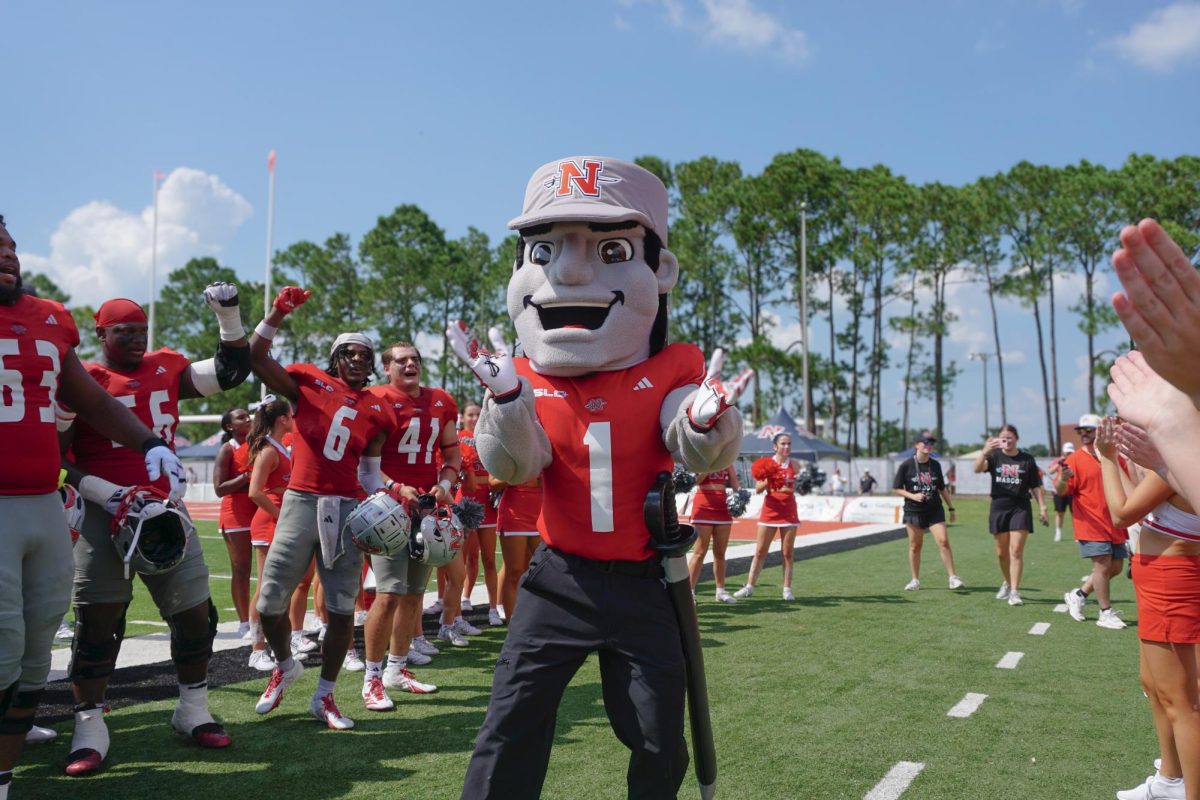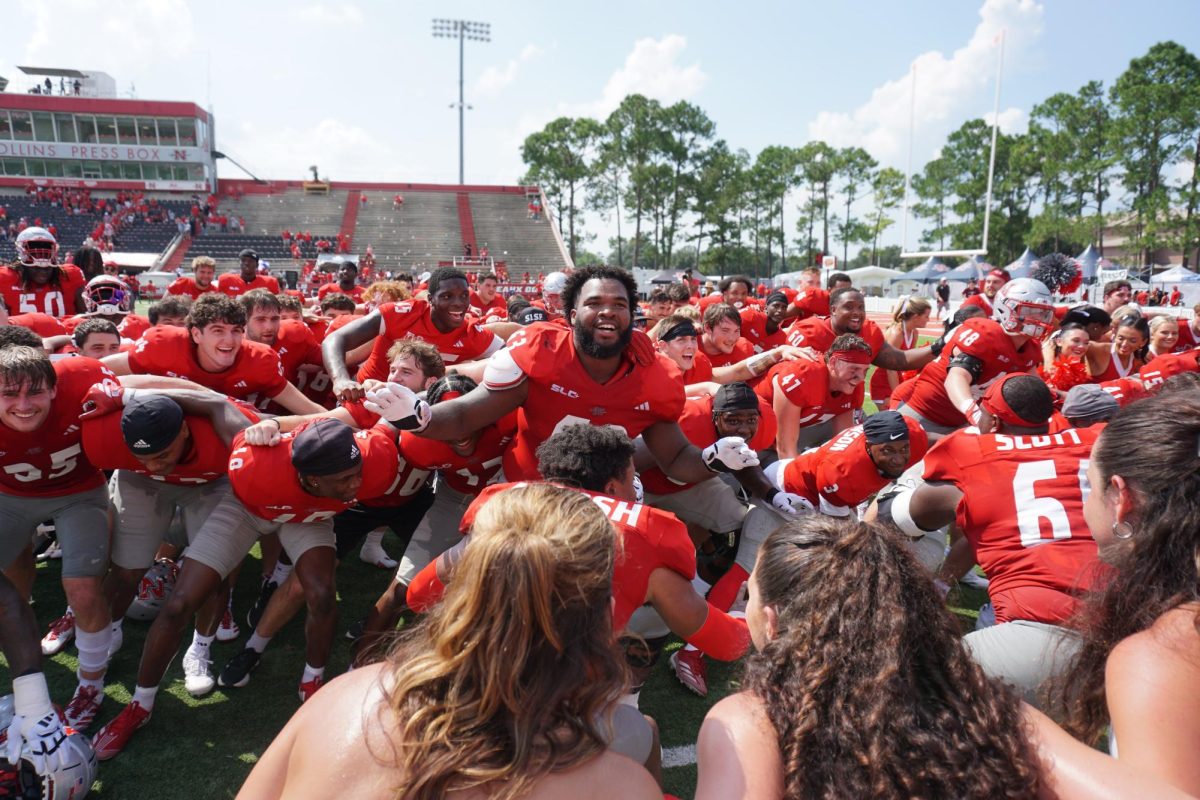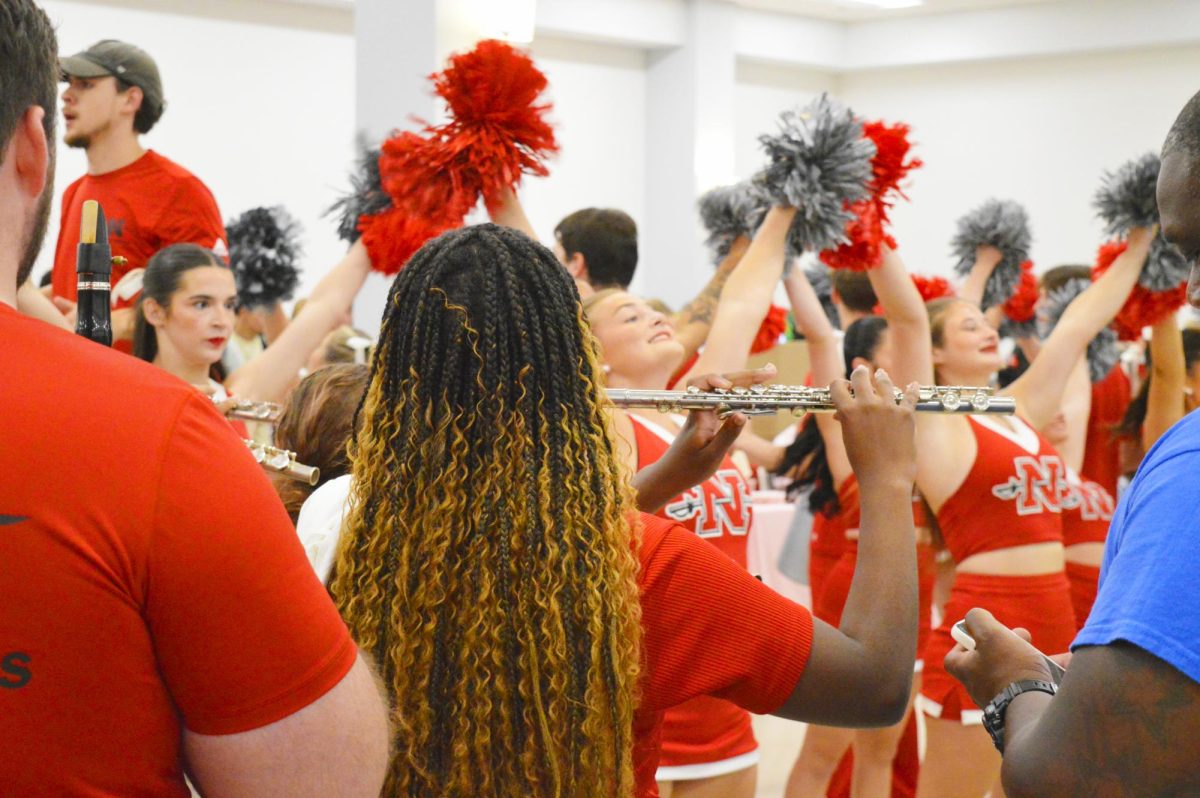Since taking his position as head of University Police last Monday, Grady Morris has been implementing his plan to change the department to adhere to a community-oriented policing concept.”I saw an opportunity to take a good police department to another level as in relation to law enforcement, particularly getting it prepared by a national accreditation firm.
“I like being first. I don’t know of another university in the state that has an accredited university police department.
“So when the opportunity presented itself, I jumped at it, because it gives me a chance to utilize some of my management skills. My degree is in organizational management.”
Morris held the position of chief of police at Southern University at Shreveport.
The position at Nicholls was vacated when former acting head Dr. Eugene Dial accepted the position of vice president for student affairs.
“We have a professional police officer with management experience to run the police department, which we need, as opposed to somebody trying to do it as part of one of several jobs,” Dial said.
Morris was chosen from a field of 11 applicants.
He said he uses some “proven techniques” from other universities around the nation.
“I’m a member of the International Association of Chiefs of Police and the International Association of Campus Law Enforcement Administrators. This is a tight-knit group of professional men and women, and they don’t mind sharing ideas.
“So I’ve taken some of those ideas, and put it into a plan that I’m going to implement at this University. It’s a 25-point plan that I’m going to break down into three phases.
“The first phase is going to require accountability, accessibility and visibility of the officers. It’s going to require that they be professional in everything they do,” Morris said.
He said the department will implement a public set of directives and general orders, because they guide a police agency.
“A police department is not a democracy; it is a command structure. When you have the type of authority that a police officer has, you’ve got to have some sorts of controls set in place. That’s where the general orders come in.”
Morris said he plans to put the orders and directives into a manual.
“The president will sign off on it,” he said.
“By and large these general orders and procedures are patterned on the Commission for Accredited Law Enforcement Agencies.”
Morris expects his officers to strictly follow the codes.
“There are some things you do when you get to a crime scene. That’s why O. J. Simpson got off. A lot of people didn’t realize why he got off: because the officers deviated from the basic procedures that are taught to us in an academy,” he said.
“The man got away with murder, and I really believe that.”
Morris spoke of the benefits of accreditation.
“The benefit is that it allows us to apply for different grants and assistance from the federal government. You get more revenue. It helps the University. It helps the University Police Department.
“If you have that attached to you, there are so many things that you are privy to.”
Morris was asked what was wrong with the department of University Police.
“Really, I wouldn’t say wrong. There are some things that need improving. There are police officers, and I just think people need to treat them as police officers because the days of security are over.
“They’re not security officers. We’re commissioned by the state police, and our commission that comes under the revised statute gives us the same power that any municipal police officer has. As a matter of fact, our power is greater, because we are commissioned by the state police agency,” Morris said.
He said his department is the lead agency on campus.
“In the past, I believe, they have been relegated to second-tier law enforcement where, in fact, if they understand their role, they actually should take the lead in everything.
“It’s a matter, I guess, of just changing perception at this University. That’s why we’re going to new uniforms. I did the same thing at [SUS], and it works.”
The police department at SUS is not accredited.
“But, if I had stayed, believe me, they would have. That was the path we were going,” Morris said.
He said he wants students to realize that University Police is here to help them.
“This is my primary emphasis, and I want you to print this, and I want everyone to know this. We are going to a community oriented policing concept. That’s going to mean that these officers are going to be required to get out of these cars and walk these buildings.”
Morris said officers will be seen walking through residence halls, a place where a police officer is not often seen.
“That’s where you’re going to see them. You can put this down in writing. This is going to happen, or we’re going to get some officers in here who don’t mind getting out of the cars and walking and shaking your hand,” he said.
“We’re going to break the campus down into zones. We’re going to put substations in each one of the zones.
“So, we’re going to increase the visibility of the officers, and it comes with a team effort, because I’m going to expect the SGA and the other clubs on this campus to get involved with this.”
Morris met with his sergeants Monday morning in the first of his weekly staff meetings.
“I impressed on them the need for togetherness. I don’t want any in-fighting. I put the sergeants in charge of their shifts. If you’re going to be off, then you handle your replacement,” he said.
“All I want is a sergeant on each shift.”
Morris said he has no tolerance for insubordination.
“If you bypass the chain of command and go over my head, then don’t bring it back. Don’t even come back and see me.
“You might as well stay up there with Dr. Dial because you’ve violated a directive. I don’t have time for politics and stuff.”
Morris also said he will delegate authority down the command structure.
“I told my patrol commander Captain Kraemer, if I’ve got to do his job what do I need him for? If he’s got to do the sergeants’ job, what does he need the sergeants for? If the sergeants have to do the patrol officers’ job, then what do you need them for?
“I’m not a micromanager. I told them, ‘I’m not going to stand over your shoulders and dictate to you what to do. You’re grown men. You’re intelligent, professionally-trained police officers. You have the same training as the Thibodaux Police Department. We all went to the academy,'” Morris said.
Morris attended a homecoming committee meeting Monday.
“That’ll be the last time you see me at that meeting, because I’ll have a sergeant there taking care of that.”
Because of the Jean Clery Act passed by Congress, any university that receives federal funds must make available all crime statistics to the student population.
“We are going to incorporate this into a police web site. It’s going to be a stand-alone page.”
Morris said he has a positive impression of Thibodaux.
“These are some of the nicest people. I have not met a rude person in this town yet. Really, I really haven’t. I guess it’s like coming into a different state.”
He also has a similar impression of Nicholls.
“It’s congenial. People are serious and for real. So far, I haven’t found a fake person. If you’re around me, be real, because I’m real,” Morris said.
“So far, I haven’t seen anything I dislike.”
Morris and his wife Juanita have 10 children, and all have attended college.
Their youngest child, Grady, Jr., a graduate of Evangel Christian Academy in Shreveport, will join the Colonel football team in the fall.
“He’s abou
t 5′ 10″, 290 pounds. He bench presses 425, and does a leg press of 1,000 pounds. He’s never lost a football game.”








